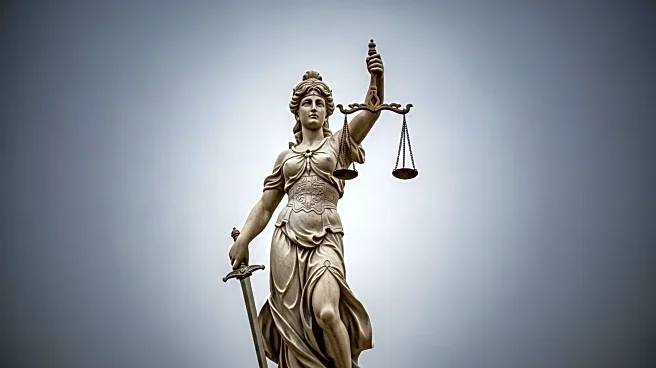What's Happening?
The tomb of Robert Badinter, a former French justice minister, was vandalized with graffiti in a cemetery near Paris. Badinter, who passed away last year at the age of 95, is set to be inducted into France's Panthéon national monument. He was known for his efforts to abolish the death penalty in France and for his campaigns against antisemitism and Holocaust denial. The graffiti reportedly criticized his work against the death penalty and his role in decriminalizing homosexuality. French President Emmanuel Macron condemned the vandalism, emphasizing Badinter's legacy and contributions to justice and human rights.
Why It's Important?
The vandalism of Robert Badinter's tomb highlights ongoing tensions surrounding his legacy and the issues he championed, such as the abolition of the death penalty and the decriminalization of homosexuality. Badinter's induction into the Panthéon signifies recognition of his contributions to French society and human rights. The incident underscores the challenges faced by those advocating for social change and the resistance they may encounter. It also reflects broader societal debates in France regarding justice, human rights, and historical memory.
What's Next?
The ceremony at the Panthéon will proceed as planned, with President Macron presiding over the event. The induction of Badinter into the Panthéon is expected to reaffirm his legacy and the values he stood for. The French government may take additional steps to protect the memory of influential figures like Badinter and address acts of vandalism that seek to undermine their contributions. Public discourse may continue around the issues Badinter championed, potentially influencing future policy decisions.
Beyond the Headlines
The vandalism incident raises questions about the protection of historical sites and the legacy of public figures. It also highlights the ongoing struggle against antisemitism and discrimination in France. Badinter's work and the challenges he faced serve as a reminder of the importance of defending human rights and the impact of historical figures on contemporary society. The event may prompt discussions on how to preserve and honor the contributions of those who have shaped national and global history.









